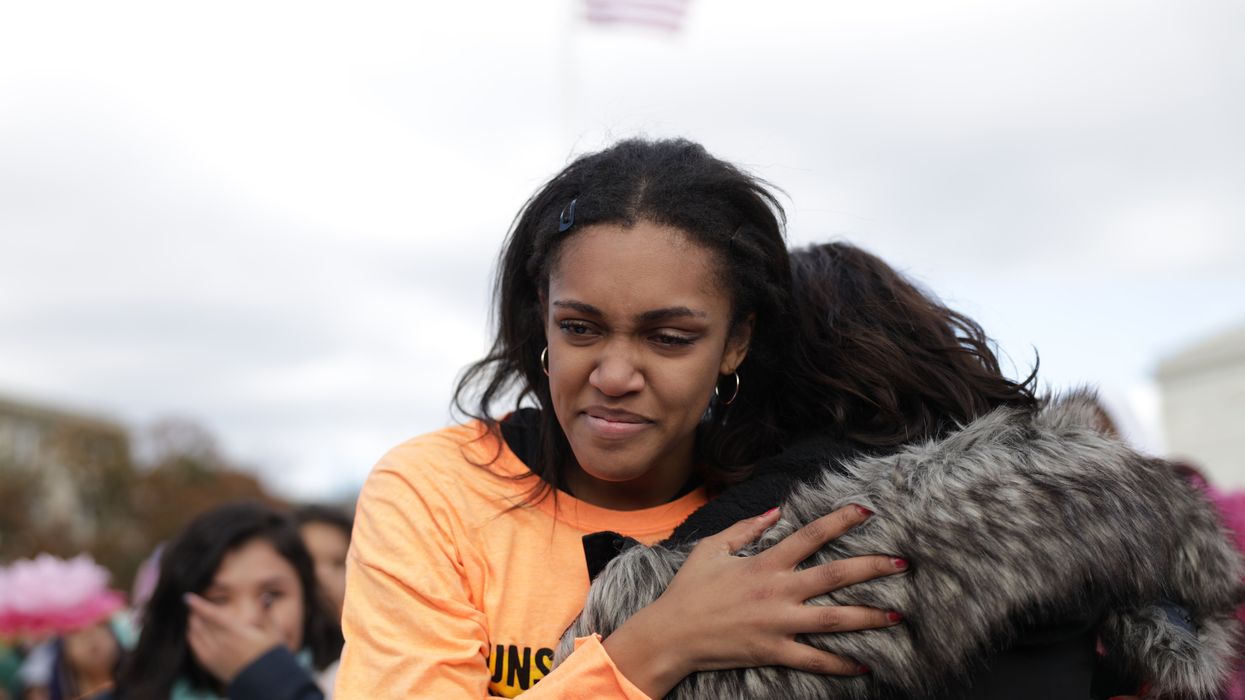Campbell, a religious sister and attorney, is the executive director of Network Lobby for Catholic Social Justice Lobby for Catholic Social Justice.
"You have the right not to open the door. You have the right to be protected from unlawful searches by ICE agents. You do not have to sign any documents that a government official asks you to sign. Know your rights."
This mantra was memorized by immigrants across the country after President Trump announced large-scale Immigration and Customs Enforcement raids this summer. A single tweet thread created a new reality for immigrants and their families. Many now fear leaving their homes, going to work or even answering a knock at the door. You don't have to be a Catholic nun to understand that forcing people to live in terror is wrong.
The Catholic social justice teaching is that all people possess an equal and inalienable worth. Scripture tells us that we too were once strangers in a strange land and so we must love immigrants as ourselves. But the Trump administration is attacking our immigrant sisters and brothers in the Supreme Court.
Beneficiaries of DACA, or the Deferred Action for Childhood Arrivals program, are a generation of young immigrants who were brought to our country as children, but are now at risk of losing their protections. For many, the United States is the only home they have ever known. Until recently, they have lived their lives without fear of deportation. Soon, that may change.
And our minimally regulated campaign finance system is part of their problem.
The Supreme Court has heard oral arguments in three cases that will determine the future of the DACA program. If the court sides with the Trump administration, nearly 700,000 aspiring Americans will be deported. Their home is here and to end the DACA program goes against all moral teachings of my faith.
For almost two decades, Congress has failed to establish a permanent pathway to citizenship for people who were brought to the United States at a young age, also called "Dreamers." Although several bipartisan versions of the Dream Act have been introduced in Congress, none has passed. And so, in 2012 the Obama administration created the DACA program, granting "Dreamers" a temporary reprieve while Congress worked on a permanent solution.
The House passed such a bill this June, with bipartisan support. However, like so many other critical common good bills, Senate Majority Leader Mitch McConnell has buried the legislation in his Senate graveyard and refuses to take any action.
This isn't what the voters want. Polling shows 77 percent of Americans support a pathway to citizenship and protections for these young immigrants. However, due to paralysis in Congress, the fate of the program now rests in the hands of the Supreme Court.
One of the reasons Congress is so hamstrung on immigration, and many other critical issues, is because of the undue influence of wealthy far right donors. The only way we will ever have a government that is truly guided by the will of the people is to reform our democratic process and put the power back where it belongs — in the hands of voters.
In a secular democracy, elections are the closest thing we have to a sacrament. As a Catholic sister who follows Pope Francis' call to immerse ourselves in politics, I can see that our elections have been corrupted. The 2010 landmark decision in Citizens United v. FEC undermined democracy by opening the door for wealthy far right donors to spend unlimited — and often untraceable — amounts of money to influence voters.
Citizens United has also dealt an additional blow to our democracy by ushering in a Senate and president who care more about delivering on promises made to donors rather than the priorities of their constituents. This leaves important issues, like the fate of almost 700,000 DACA recipients, in limbo.
The only way to finally pass common-sense, good legislation is to reclaim our democracy and end the outsized influence of big money. HR 1, passed by the House this spring, is a comprehensive approach to fixing our democracy. It will help restore faith in our government by protecting every person's vote, reducing the power of lobbyists and removing big money from campaigns. This is faithful democracy in action.
The Supreme Court now has the opportunity to make things right for DACA recipients. However, Congress must act to reverse the corruption of Citizens United and ensure all Americans have the opportunity to participate in our democracy and thrive in our country. This is the faithful way forward. It is only when every vote counts that "We the People" can truly be heard.



















